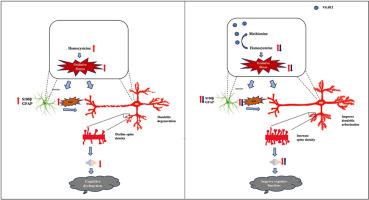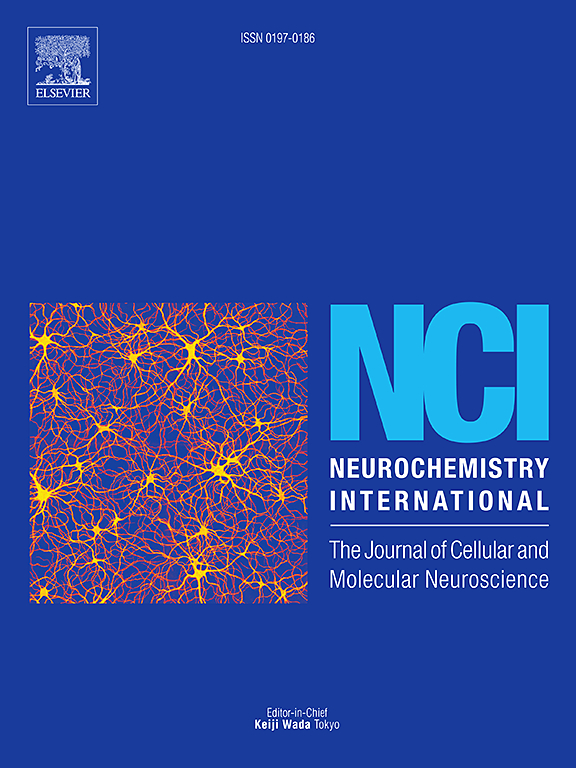Neuroprotective effect of vitamin B12 supplementation on cognitive functions and neuronal morphology at different time intervals after traumatic brain injury in male Swiss albino mice
IF 4.4
3区 医学
Q2 BIOCHEMISTRY & MOLECULAR BIOLOGY
引用次数: 0
Abstract
Traumatic brain injury is a highly irreversible process that consists of primary as well as secondary injury which develops and progresses over months to years, leading to cognitive dysfunctions. Vitamin B12 received considerable interest due to its potential therapeutic properties. The pathways of vitamin B12 are closely related to neuronal survival but its effects on the pathophysiology of injury with respect to cognition is a relatively unexplored area of research. In this study, we investigated, the effect of vitamin B12 and its involvement in neuroprotection on TBI-induced pathophysiology in male Swiss albino mice. Our findings suggested that vitamin B12 supplementation improves TBI-mediated neurological impairments, spatial and recognition memory, and anxiety-like behavior. Furthermore, the oxidative stress was reduced by declined homocysteine level with vitamin B12 supplementation validating declined expression of astrocytes and TBI biomarkers. The studies on neuronal morphology revealed that vitamin B12 supplementation increases the dendritic arborization and density of mushroom and filopodia-shaped spines and further increases the expression of synaptic plasticity-related genes and proteins. Taken together, our findings reveal that, supplementation of vitamin B12 restored the TBI-induced downregulation of dendritic arborization, and spine density which ultimately increases synaptic plasticity, cell survival, and recovery of cognitive dysfunctions.

补充维生素 B12 对雄性瑞士白化小鼠脑外伤后不同时间间隔认知功能和神经元形态的神经保护作用
创伤性脑损伤是一个高度不可逆的过程,包括原发性和继发性损伤,经过数月至数年的发展和演变,导致认知功能障碍。维生素 B12 因其潜在的治疗特性而备受关注。维生素 B12 的作用途径与神经元的存活密切相关,但其对认知损伤的病理生理学的影响是一个相对尚未开发的研究领域。在这项研究中,我们调查了维生素 B12 及其参与神经保护对雄性瑞士白化小鼠创伤性脑损伤引起的病理生理学的影响。我们的研究结果表明,补充维生素 B12 可改善创伤性脑损伤引起的神经损伤、空间记忆和识别记忆以及焦虑行为。此外,补充维生素 B12 后,同型半胱氨酸水平下降,氧化应激也随之减少,这验证了星形胶质细胞和创伤性脑损伤生物标志物表达的下降。对神经元形态学的研究表明,补充维生素 B12 可增加树突轴化以及蘑菇状和丝状棘突的密度,并进一步增加突触可塑性相关基因和蛋白的表达。综上所述,我们的研究结果表明,补充维生素 B12 可恢复创伤性脑损伤引起的树突轴化和棘突密度下调,从而最终提高突触可塑性、细胞存活率和认知功能障碍的恢复。
本文章由计算机程序翻译,如有差异,请以英文原文为准。
求助全文
约1分钟内获得全文
求助全文
来源期刊

Neurochemistry international
医学-神经科学
CiteScore
8.40
自引率
2.40%
发文量
128
审稿时长
37 days
期刊介绍:
Neurochemistry International is devoted to the rapid publication of outstanding original articles and timely reviews in neurochemistry. Manuscripts on a broad range of topics will be considered, including molecular and cellular neurochemistry, neuropharmacology and genetic aspects of CNS function, neuroimmunology, metabolism as well as the neurochemistry of neurological and psychiatric disorders of the CNS.
 求助内容:
求助内容: 应助结果提醒方式:
应助结果提醒方式:


